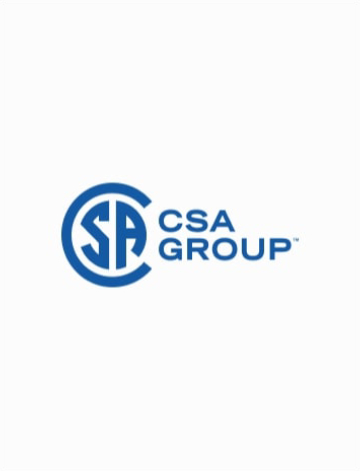Preface
This is the harmonized CSA Group and UL standard for general requirements for safety of household and similar appliances. It is the second edition of CAN/CSA C22.2 No. 60335-1, and the sixth edition of UL 60335-1. This edition of CAN/CSA-C22.2 No. 60335-1 coexists with the previous edition(s) published on October 31, 2011. This edition of UL 60335-1 supersedes the previous edition(s) published on October, 31, 2011.
This harmonized standard is based on IEC Publication 60335-1: edition 5.1 Standard for Safety of Household and Similar Appliances, Part 1: General Requirements issued April, 2014, including corrigendum 1 (2010), corrigendum 2 (2011) and its amendment 1 (2013). IEC publication 60335-1 is copyrighted by the IEC.
This standard is considered suitable for use for conformity assessment within the stated scope of the standard.
This standard has been approved by the Standards Council of Canada (SCC) as a National Standard of Canada.
This Standard has been approved by the American National Standards Institute (ANSI) as an American National Standard.
Scope
This International Standard deals with the safety of electrical appliances for household and similar purposes, their RATED VOLTAGE being not more than 250 V for single-phase appliances and 480 V for other appliances.
NOTE 1 BATTERY-OPERATED APPLIANCES and other d.c. supplied appliances are within the scope of this standard. Dual supply appliances, either mains-supplied or battery-operated, are regarded as BATTERY-OPERATED APPLIANCES when operated in the battery mode.
Appliances not intended for normal household use but which nevertheless may be a source of danger to the public, such as appliances intended to be used by laymen in shops, in light industry and on farms, are within the scope of this standard.
NOTE 2 Examples of such appliances are catering equipment, cleaning appliances for commercial use, and appliances for hairdressers.
As far as is practicable, this standard deals with the common hazards presented by appliances that are encountered by all persons in and around the home. However, in general, it does not take into account
– persons (including children) whose
• physical, sensory or mental capabilities; or
• lack of experience and knowledge
prevents them from using the appliance safely without supervision or instruction;
– children playing with the appliance.
NOTE 3 Attention is drawn to the fact that
– for appliances intended to be used in vehicles or on board ships or aircraft, additional requirements may be necessary;
– in many countries, additional requirements are specified by the national health authorities, the national authorities responsible for the protection of labour, the national water supply authorities and similar authorities.
NOTE 4 This standard does not apply to
– appliances intended exclusively for industrial purposes;
– appliances intended to be used in locations where special conditions prevail, such as the presence of a corrosive or explosive atmosphere (dust, vapour or gas);
– audio, video and similar electronic apparatus (IEC 60065);
– appliances for medical purposes (IEC 60601);
– hand-held motor-operated electric tools (IEC 60745);
– personal computers and similar equipment (IEC 60950-1);
– transportable motor-operated electric tools (IEC 61029).
1DV.1 DR Modification to add after the first paragraph:
This standard covers the above-noted products that are intended to be installed or used in accordance with:
– CSA C22.1, Canadian Electrical Code (CEC) Part I
– NFPA 70, National Electrical Code (NEC), in the United States.
1DV.2 DE Modification to add the following note:
NOTE 5 This Part 1 may be employed for investigation of components and sub-assemblies for the purpose of their pre-selection for use in appliances. If the component or sub-assembly used complies with this standard, the tests for the component or sub-assembly specified in the particular appliance standard in some cases will not need to be made in the particular appliance or assembly. Additional testing on a component or subassembly may be required. For example, if a control system is associated with the particular appliance control system, additional tests could potentially be necessary on the final appliance.


